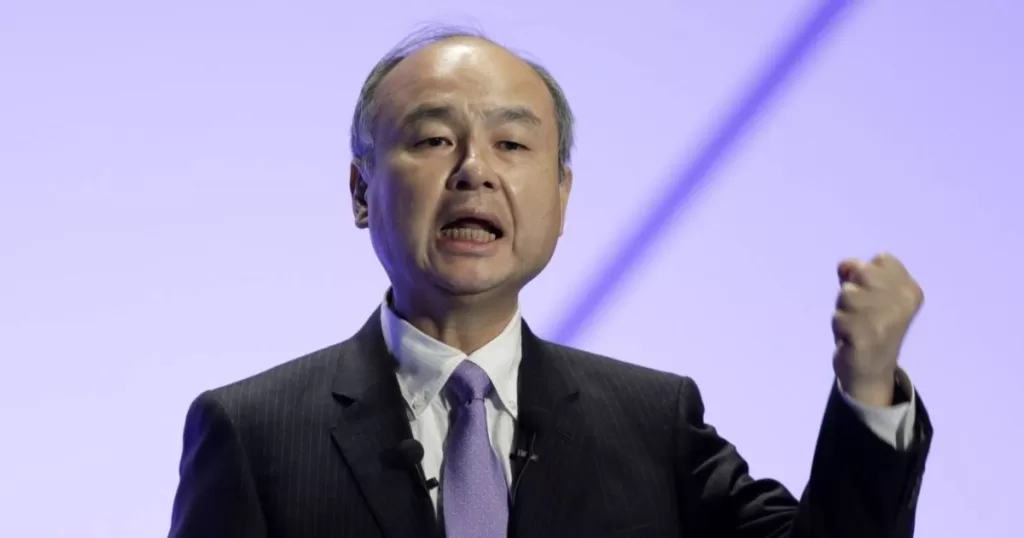How Masayoshi Son Started SoftBank
Masayoshi Son’s entrepreneurial journey began while he was a 19-year old student at UC Berkeley. He had a passion for inventing and dreamed up over 250 invention ideas, which he diligently recorded in his “Invention Idea Notes.” Selecting one promising concept, he developed a prototype pocket language translator and convinced several professors to help refine it. Masayoshi sold the final patent to Sharp Corporation for nearly $1 million.

Buoyed by this initial taste of success, Masayoshi went on an entrepreneurship tear while at Berkeley. He remodeled arcade games imported from Japan and placed them in eateries across campus, bringing in $1 million in the process. He also wrote video game software and later sold the company he had formed, Unison World, for $2 million. By the time Masayoshi graduated in 1980, the resourceful student had earned almost $4 million from his student ventures.
Armed with confidence and capital, Masayoshi returned to Japan in 1981 to launch his career. He methodically researched 40 different business concepts, carefully evaluating each one against 25 different success factors. Key criteria included loving the business enough to stick with it for 50 years, choosing an industry where he could reach #1 status within 10 years, and focusing on fast-growing markets. He synthesized everything into a matrix and selected PC software distribution as the most promising opportunity.
The 23-year old entrepreneur registered his new venture as SoftBank in September 1981. However, the fledgling PC software industry posed a distribution dilemma – software producers lacked marketing expertise and PC dealers had limited software selection. Sensing an opportunity for a middleman role, Masayoshi set out to bring both sides together.

Just three months after founding SoftBank, Masayoshi decided to make a splash at the largest electronics trade show in Japan. He registered for the biggest booth, on par with industry titans like Sony and Toshiba. Masayoshi convinced a dozen PC software vendors to exhibit for free, promising to handle all the booth logistics and marketing costs himself. His lavish, cluttered booth was a sensation at the show, swarming with curious visitors. However, few actual sales resulted.
In the aftermath, Masayoshi endured ridicule as peers labeled the naive trade show stunt as a flop. Stubbornly persistent, he continued networking to catalyze his software distribution vision. A few weeks post-show, Masayoshi received a surprise call from an executive at Joshin Denki, Japan’s #3 consumer electronics retailer. They wanted help stocking software for their new chain of PC stores.
Sensing a golden opportunity, Masayoshi traveled to Osaka the very next day to pitch Joshin Denki’s president. With irrational conviction but zero evidence, Masayoshi promised to forego all competing distribution deals and devote himself entirely to powering Joshin Denki’s software needs. His passionate, all-or-nothing proposition resonated with the president. On the spot, he awarded Masayoshi an exclusive contract for supplying software to Joshin Denki’s PC stores.
The Joshin Denki deal provided instant credibility for the fledgling SoftBank. Masayoshi rapidly signed distribution contracts with other top retailers, as well as exclusivity agreements with major software producers. Revenues exploded from $12,000 to $2.3 million within SoftBank’s first year.
In subsequent years, Masayoshi demonstrated visionary leadership and a savvy instinct for identifying the “next big thing.” He launched Japan’s first computer magazines in 1983 despite protests from his employees. He invested aggressively in computer networking in the late 80’s before most people saw its potential. At every turn, Masayoshi navigated risks and placed bold bets – all driven by his intense desire to reach the top of the technology world.
Over its first decade, SoftBank grew into a $350 million conglomerate with 570 employees spanning software distribution, publishing, networking infrastructure and more. The story illustrates how sheer determination and conviction can override inexperience and other limitations in the entrepreneurial pursuit of success. Masayoshi Son built his empire step-by-step, cementing partnerships to systematically remove roadblocks to his long-term goal of establishing SoftBank as Japan’s leading tech company.